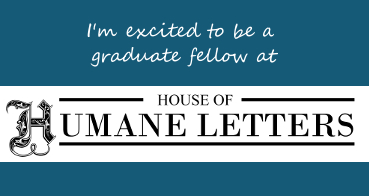This tradition of teaching the fairy tales in scholarly fashion started with the Brothers Grimm in the 1800s and continues on to this day. Please see the timeline of scholars below. And after that, I’ve included notes from Angelina Stanford’s talk on this Succession, so you can hear it in her own words.

As told by Angelina Stanford:
…I’m about to give to you the scholarly succession of the Grimm Brothers. … Wilhelm was a professor of Medieval Literature. Jacob was a philologist. If you want to try to keep them straight in your mind, I’m absolutely convinced they are Lewis and Tolkien. Wilhelm is Lewis, and Jacob is Tolkien. … So, they were professors of literature, and they introduced the world to fairy tales. And like I said, they believed that fairy tales were for scholars — not for children, but for adults to know and study and understand…
Now, you may not be aware that English Literature, as a field of study, is a very relatively new field. The Grimm Brothers were kind of cutting edge in Germany, having classes on Medieval Literature and German Literature in the 1800s. Just to give you some timeline, C.S. Lewis becomes the first chair of Medieval Literature at Cambridge in the 1940s, when the chair was created. Do you see the gap there in time?
So, England, not surprisingly, was way behind the curve. You went to an English university, and you got a degree in Classics. Why would you read anything in your own language? That’s stupid, they would say. That’s free reading; you do that on your own time. Now … you won’t hear me say this much, if ever — this is the one time you’re going to hear me say it: About this, America was cutting edge! America was like, “We’ll do English Literature — BRING IT! We don’t have any kind of Classics Department.” So, Harvard University starts teaching classes in English Literature in the late 1800s, and it’s mostly in the work of a guy named Francis Child.
Francis Child … wasn’t technically an English professor because they didn’t have an English Department, but he was the guy in the department who was sneaking English books into classes, and they’re getting all mad at him. … He worked on a volume of books that Harvard published, where he … gave us the definitive Chaucer, the definitive Spencer text, Shakespeare… the fact that we know who Edmund Spencer is is largely because of the work of Francis Child. Francis Child in 1848 took a sabbatical and … went to Germany, where he enrolled in classes at the University of Berlin, where he took classes by — you guessed it! — Wilhelm and Jacob Grimm. And they were like, “Dude! Fairy Tales!” and he’s like, “I’m all in!” So he goes back to Harvard, and he’s like, “If y’all thought wanting to study Chaucer was crazy, wait ‘til you hear my second idea: fairy tales!”
They did think he was crazy, but he had a disciple, God bless this man! …one of my favorite literature professors ever … George Lyman Kittredge… Kittredge starts teaching a class at Harvard in the late 1800s on fairy tales. The Classics Department want him fired. The class, meanwhile, was so popular, it was standing room only, and spilled over into the hall. … He’s giving them final exams, he’s saying, “No, no, we can study fairy tales with the same kind of rigor that you study Homer. Forget those classicists; we’re gonna scholarly study fairy tales — the Grimm Brothers!” And he did.
Now, Kittredge retired in 1935. At the time of his death, he was the world’s foremost expert on anything that had to do with English Literature. Chaucer, Sir Gawain, Shakespeare, Spencer, fairy tales — he was the guy! …
So when Francis Child dies, Kittredge is given his job, and then Harvard University creates an English Department, and Kittredge becomes the Chair of Medieval Literature at Harvard. And now we have an English Department at Harvard — cutting edge in the world. …. One of his students, by the name of William Whitehead, ends up getting his PhD from Harvard — …he is so influenced by Kittredge, he becomes a Medieval professor. He leaves Harvard and goes to Berkeley, of all places, and he starts a Medieval Literature Department there… Later he goes to the University of Warwick and starts a Medieval Literature Department there. This is before C.S. Lewis has his Cambridge [Medieval] department, so now we’re at like, C.S. Lewis level [in time]
Now, while William Whitehead is still at Harvard teaching … he taught a young student named Paul Theiner, who ends up getting his PhD from Harvard … Paul Theiner is a HUGE name … he only died in 2017, if you wanna start figuring out these timelines. … Paul Theiner then goes to Syracuse University, where he teaches a young student named Bryant Bachman. Bryant Bachman also gets a PhD in Medieval Literature, and starts teaching Medieval Literature and Chaucer at the university level. He gets a job at the University of Louisiana, where he teaches a young, up-and-coming Medievalist, Angelina Stanford, who also is obsessed with Medieval Literature and fairy tales, and who is now teaching you. So you, each of you, are in a direct line of scholarly succession from Wilhelm and Jacob Grimm to you! …You are all in direct line of the Grimm Brothers, lovingly handed on! I like to believe I’m carrying on the Medieval and fairy tale scholarly approach created by the Grimm Brothers …
I hope you caught that Medieval thread that runs through all of these scholars. The Medieval period is the end of the line historically of an entire culture telling and hearing stories symbolically, a tradition of patterns, images, and metaphors that goes all the way back to ancient times, to the very beginning. This art and skill of reading metaphorically is what I have been taught by my teacher, Angelina Stanford, and is what she learned from her teachers, and continues to learn from the works of literary critics and story tellers such as Northrop Frye, C.S. Lewis, and J.R.R. Tolkien, and even a few living authors. It is how I teach story. I’m honored to be a part of restoring the ruins of this very human literary tradition.






